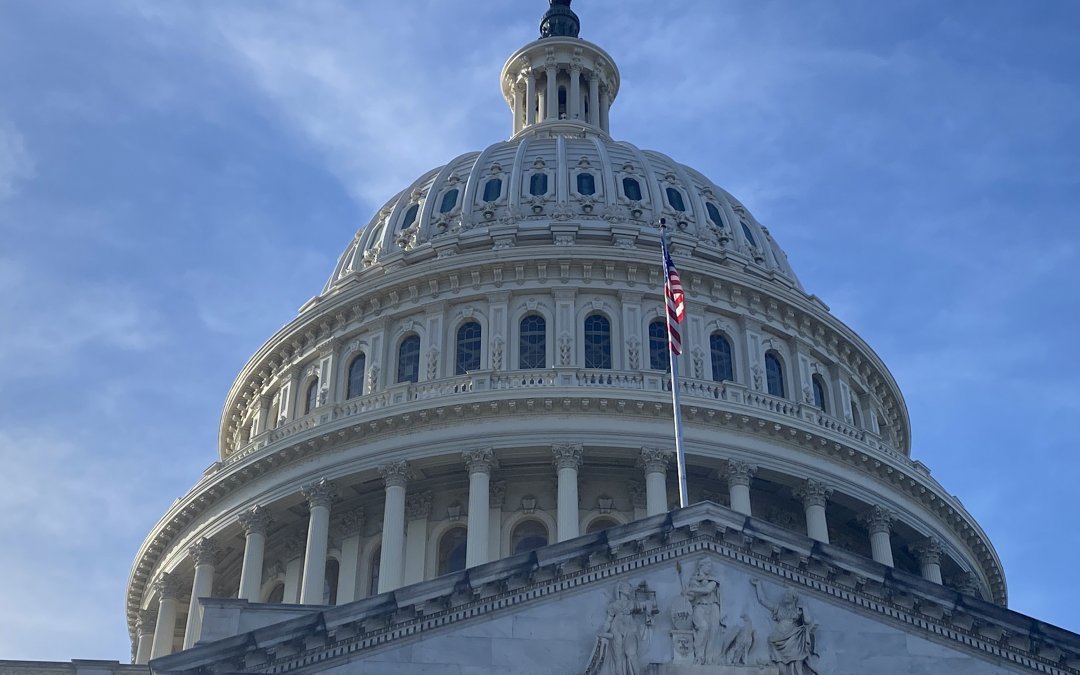WASHINGTON — When Tennessee resident Allie Phillips heard she was pregnant with her second child, she said she and her husband Brian were “so excited.” However, after 19 weeks, Phillips met with a fetal specialist and received news that no expecting parent wants to hear: The baby she was carrying had a rare brain condition and would not be able to survive for long outside of the womb.
Phillips’ specialist said she had two options: risk her own health and continue with the pregnancy or travel out of state to obtain an abortion. Tennessee law bans abortions except under very limited medical emergency exceptions. Phillips raised money on GoFundMe and traveled to New York to obtain an abortion, during which time she suffered a miscarriage.
“I am distraught,” Phillips told the Senate Committee on the Budget during a hearing on Wednesday. “I went into surgery alone. I sat in recovery alone. I grieved her loss alone in a city I’ve never been far away from the comfort of my home… No family should be treated this way.”
Even with the GoFundMe resources, Phillips, a mother to a then-5-year-old, still lost the equivalent of three weeks of pay due to traveling and childcare costs. Without financial assistance from her parents, Phillips said she wouldn’t have been able to pay the bills.
Phillips was among the witnesses who spoke about the detrimental economic effects resulting from abortion restrictions following the landmark Supreme Court ruling Dobbs v. Jackson in 2022, which overturned the constitutional right to an abortion.
Since then, 14 states have made abortion illegal, and several others have imposed restrictions. An American Journal of Public Health study released in 2018 found that women who are denied an abortion are four times more likely to live in poverty. The same study found that women who carry an unwanted pregnancy to term experience a 78% increase in debt and an 81% increase in adverse credit reports like evictions and bankruptcies.
Caitlin Myers, a professor of economics at Middlebury College, said deciding when to become a mother is “the single largest economic decision many women will make in their lifetime,” noting that first-time mothers see a 30% reduction in pay.
“When Republican politicians take away a woman’s control over her own body, they’re also taking away women’s ability to plan their families, their finances, and their future on their own terms,” Sen. Patty Murray (D-Wash) added. “It’s pretty clear that Republicans want women to stay pregnant but won’t lift a finger to help new parents.”
Ranking member Chuck Grassley (R-Iowa) accused Senate Democrats of “dehumanizing” abortion and questioned why the committee held the hearing in the first place.
“Abortion is not an issue that lends itself to being looked at solely through an economic lens,” Grassley said. “After all, life is priceless.”
On February 16th, the Alabama Supreme Court ruled that embryos created through in-vitro fertilization (IVF) should be considered children. Since the ruling, three Alabama clinics have paused their IVF services.
Several lawmakers and panelists expressed concerns that legislatures could soon restrict women’s access to IVF and contraceptives.
According to Myers, IVF allows women more time to seek the right partner and invest in their education and career before starting a family. If IVF were restricted, Myers said she fears it could set women back economically even further.
Chairman Whitehouse (D-R.I.) called on Congress to pass federal legislation legalizing access to abortion, IVF, and contraceptives.
“Generations of women fought for their freedom to make their own decisions… but now extremists are trying to undo it all,” Sheldon Whitehouse (D-R.I.) added. “Congress should safeguard access to abortion and contraceptives and codify Roe into law.”


